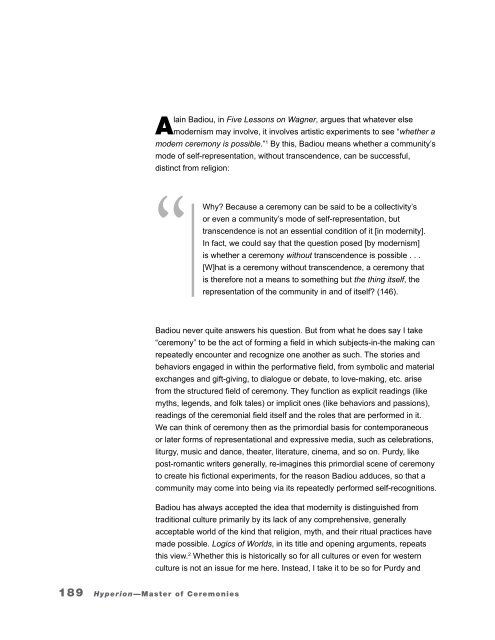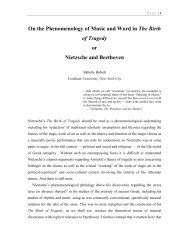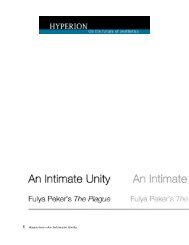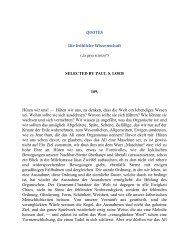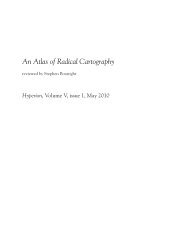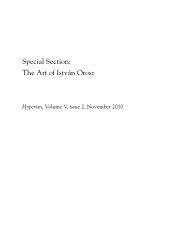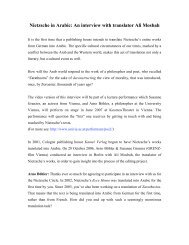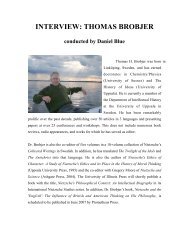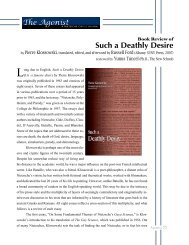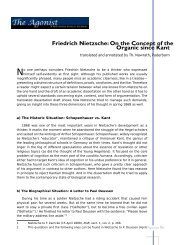Hyperion - Nietzsche Circle
Hyperion - Nietzsche Circle
Hyperion - Nietzsche Circle
You also want an ePaper? Increase the reach of your titles
YUMPU automatically turns print PDFs into web optimized ePapers that Google loves.
189 <strong>Hyperion</strong>—Master of Ceremonies<br />
Alain Badiou, in Five Lessons on Wagner, argues that whatever else<br />
modernism may involve, it involves artistic experiments to see “whether a<br />
modern ceremony is possible.” 1 By this, Badiou means whether a community’s<br />
mode of self-representation, without transcendence, can be successful,<br />
distinct from religion:<br />
“<br />
Why? Because a ceremony can be said to be a collectivity’s<br />
or even a community’s mode of self-representation, but<br />
transcendence is not an essential condition of it [in modernity].<br />
In fact, we could say that the question posed [by modernism]<br />
is whether a ceremony without transcendence is possible . . .<br />
[W]hat is a ceremony without transcendence, a ceremony that<br />
is therefore not a means to something but the thing itself, the<br />
representation of the community in and of itself? (146).<br />
Badiou never quite answers his question. But from what he does say I take<br />
“ceremony” to be the act of forming a field in which subjects-in-the making can<br />
repeatedly encounter and recognize one another as such. The stories and<br />
behaviors engaged in within the performative field, from symbolic and material<br />
exchanges and gift-giving, to dialogue or debate, to love-making, etc. arise<br />
from the structured field of ceremony. They function as explicit readings (like<br />
myths, legends, and folk tales) or implicit ones (like behaviors and passions),<br />
readings of the ceremonial field itself and the roles that are performed in it.<br />
We can think of ceremony then as the primordial basis for contemporaneous<br />
or later forms of representational and expressive media, such as celebrations,<br />
liturgy, music and dance, theater, literature, cinema, and so on. Purdy, like<br />
post-romantic writers generally, re-imagines this primordial scene of ceremony<br />
to create his fictional experiments, for the reason Badiou adduces, so that a<br />
community may come into being via its repeatedly performed self-recognitions.<br />
Badiou has always accepted the idea that modernity is distinguished from<br />
traditional culture primarily by its lack of any comprehensive, generally<br />
acceptable world of the kind that religion, myth, and their ritual practices have<br />
made possible. Logics of Worlds, in its title and opening arguments, repeats<br />
this view. 2 Whether this is historically so for all cultures or even for western<br />
culture is not an issue for me here. Instead, I take it to be so for Purdy and


